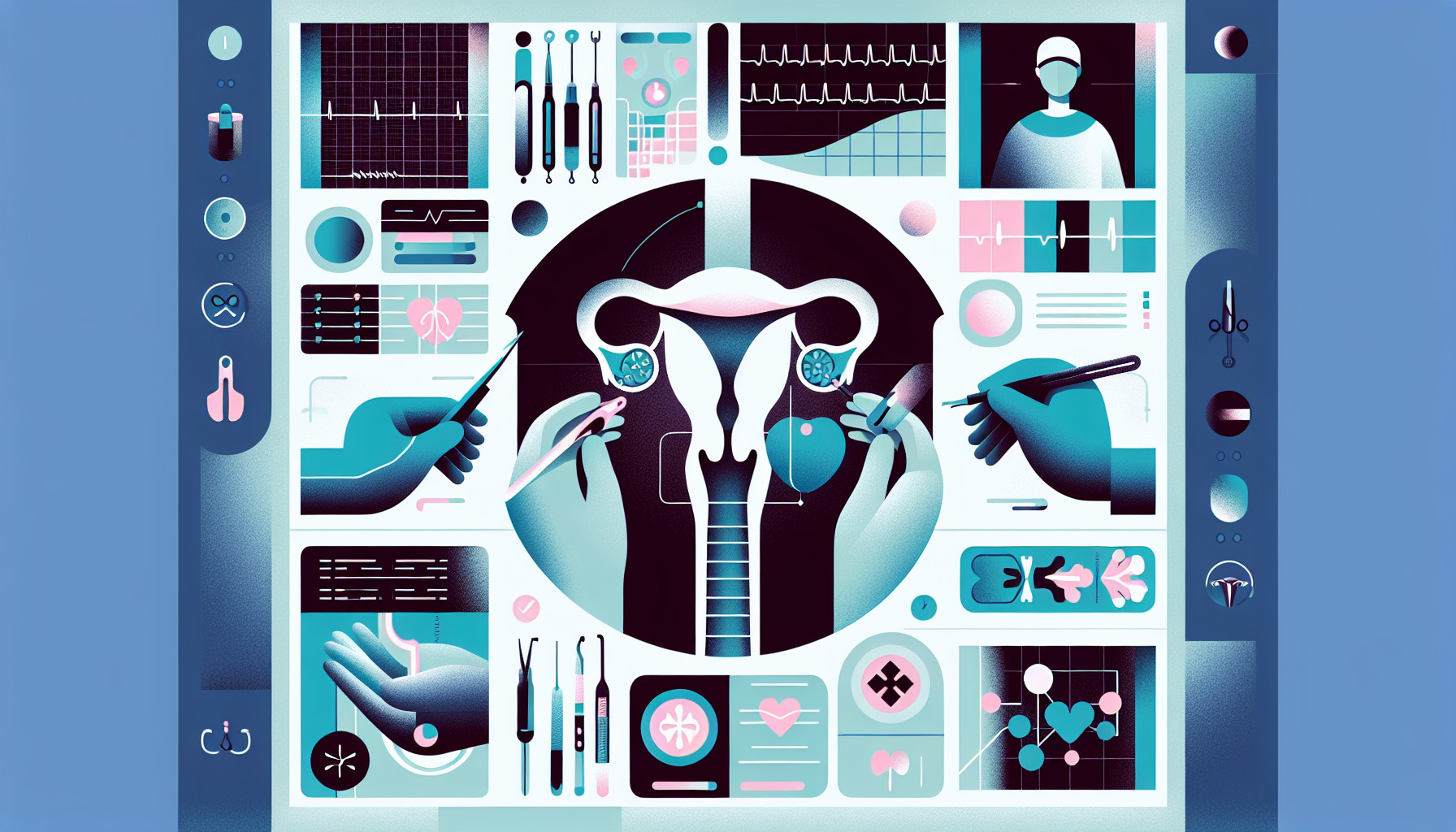Our Summary
This research paper is about a study that looked at the likelihood of women becoming pregnant after undergoing a procedure known as endometrial ablation, which is used to treat heavy menstrual bleeding and is typically performed on women who no longer wish to have children. The study also examined the potential complications of such pregnancies.
The study was conducted on women in New South Wales, Australia, between 2001 and 2015. Out of 18,559 women who had the procedure, 575 (or around 3.1%) had a pregnancy that lasted at least 20 weeks after the procedure.
The study found that women who had never given birth before the procedure (nulliparity), older women, single women or those who were widowed/divorced/separated, and those diagnosed with heavy menstrual bleeding were more likely to get pregnant after the procedure.
Pregnancies after endometrial ablation were found to have higher rates of complications, including cesarean deliveries (43%), preterm births (13%), twin or higher order pregnancies (9%), and stillbirths (13.3 per 1000 births).
The study emphasizes the need for careful discussion and consideration of treatment options for heavy menstrual bleeding, particularly for women who have never given birth.
FAQs
- What is the likelihood of a woman becoming pregnant after undergoing endometrial ablation?
- What are the potential complications of pregnancies after endometrial ablation?
- Who is more likely to get pregnant after undergoing an endometrial ablation procedure?
Doctor’s Tip
A doctor might tell a patient considering endometrial ablation that while the procedure is effective in reducing heavy menstrual bleeding, there is still a small risk of pregnancy afterwards. They may advise using a reliable form of contraception after the procedure to prevent an unplanned pregnancy. Additionally, they may emphasize the importance of discussing all treatment options and potential risks with their healthcare provider before making a decision.
Suitable For
Typically, patients who are recommended for endometrial ablation are women who have completed their family planning and no longer wish to have children. These women often suffer from heavy menstrual bleeding that has not responded to other treatments such as medication or hormonal therapy. Endometrial ablation is considered a safe and effective treatment for these women, as it can significantly reduce or eliminate menstrual bleeding without the need for a hysterectomy.
Women who are not suitable candidates for endometrial ablation include those who wish to retain their fertility, as the procedure can significantly reduce the chances of becoming pregnant. Additionally, women with certain medical conditions such as uterine cancer, uterine abnormalities, or pelvic inflammatory disease may not be suitable candidates for endometrial ablation.
It is important for patients considering endometrial ablation to discuss their options with their healthcare provider and carefully consider the potential risks and benefits of the procedure. It is also important for healthcare providers to thoroughly evaluate patients to ensure they are appropriate candidates for endometrial ablation and to provide appropriate counseling on the potential impact on fertility.
Timeline
Before endometrial ablation:
- Patient experiences heavy menstrual bleeding
- Patient consults with a healthcare provider about treatment options
- Patient undergoes various tests and evaluations to determine the cause of heavy bleeding
- Healthcare provider recommends endometrial ablation as a potential treatment option
- Patient discusses risks and benefits of the procedure with their healthcare provider
- Patient decides to undergo endometrial ablation procedure
After endometrial ablation:
- Patient may experience mild cramping and discomfort post-procedure
- Patient is advised to rest and avoid strenuous activities for a certain period of time
- Patient may experience lighter menstrual periods or no periods at all
- Patient follows up with their healthcare provider for post-procedure check-ups and monitoring
- Patient may experience potential complications or side effects of the procedure
- Patient discovers they are pregnant after the procedure and may face additional risks and complications during pregnancy
It is important for patients to thoroughly discuss their concerns, preferences, and future plans with their healthcare provider before undergoing endometrial ablation to ensure that they make informed decisions about their treatment and understand the potential risks and outcomes.
What to Ask Your Doctor
- What is endometrial ablation and how does it work to treat heavy menstrual bleeding?
- What are the potential risks and complications associated with endometrial ablation?
- What is the likelihood of becoming pregnant after undergoing endometrial ablation?
- What factors may increase the likelihood of pregnancy after the procedure?
- What are the potential complications of pregnancy following endometrial ablation?
- Are there any precautions or recommendations for contraception after the procedure?
- How long should I wait before attempting to conceive after undergoing endometrial ablation?
- What are the chances of a successful pregnancy after endometrial ablation?
- Are there any alternative treatment options for heavy menstrual bleeding that do not affect fertility?
- Can you provide me with more information or resources to help me make an informed decision about endometrial ablation?
Reference
Authors: Ibiebele I, Nippita TA, Baber R, Torvaldsen S. Journal: Acta Obstet Gynecol Scand. 2021 Feb;100(2):286-293. doi: 10.1111/aogs.14002. Epub 2020 Oct 12. PMID: 32984945
